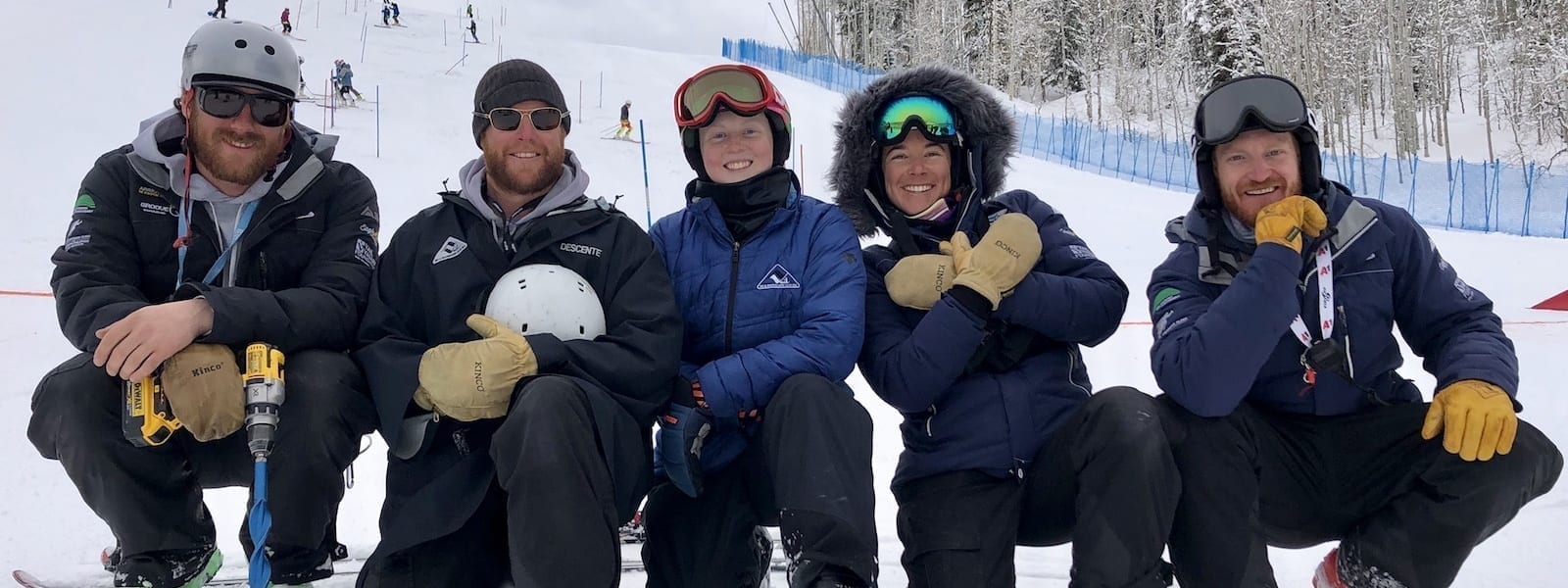Values in Ski Racing: Part Two
In part one of my two-part series on values in ski racing, I explored the essential importance of values as the foundation of your children’s ski racing experiences. I also described what I consider to be healthy and unhealthy values. In part two of this series, I discuss how you can ensure that your young ski racers embrace healthy values that will shape their ski racing and personal development in the most positive way possible.
Where Do Your Children Get Their Ski Racing Values?
The most obvious place from which your children get their values about ski racing is from you. As a general rule, whatever values you possess and express, whether political, religious, social, or, in our case, related to ski racing, your children are mostly to adopt them. Why? Because they are exposed to your values most frequently, consistently, and intensely from the earliest stages of their lives. Your kids see your values in the words you use, the emotions you express, and the actions you take. As their parents, your children are immersed in your values 24/7.
At the same time, as your children grow older and they venture beyond your home, your influence declines and the impact of the broadening world around them grows. This emergence from your “womb” is realized in many ways including peers, school, and, in our case, the ski racing world that they begin to interact with and become a part of as their involvement in ski racing grows. These wider influences from ski racing occur at several levels.
At the most immediate level, teammates communicate a set of ski racing values that may or may not be consistent with your own. As children get older, the influence of their peers increases and, as a result, are vulnerable to the value messages from their teammates, even those that aren’t healthy. As any veteran ski racing parent knows, many young ski racers are overly focused on results from an early age (and guess where they get their values!).
At a higher level, coaches also convey value messages to your young ski racers because they set the tone, priorities, and goals of a team and have a “soap box” of authority and respect from which they can “preach” their values about ski racing. As with peers, those values may or may not be aligned with your own values.
At an even higher level, every ski racing program in which your children participate is imbued with a set of values that are a reflection of its leadership and culture. Those values might range from an emphasis on fun, mastery, and participation to winning and “survival of the fittest” development.
At the highest level, the broader ski racing culture, embodied by World Cup ski racing, exerts in an inordinate influence on young ski racers. Due to the idolatry that the world’s best ski racers are afforded by young ski racers and the desire of developing ski racers to emulate their heroes, your children may be particularly impressionable to the values that are expressed by this wider ski racing culture. Fortunately, unlike in many sports, these values are generally quite admirable and beneficial to your children’s healthy ski racing or personal development as exemplified by American stars such as Mikaela Shiffrin and Ted Ligety.
Given the impact of values on your children’s athletic experiences and the abundance of sources from which your young ski racers can be exposed to values about ski racing, both healthy and otherwise, it is incumbent upon you to ensure that your children are immersed in and encouraged to adopt values that you know to be healthy and life-affirming.
Healthy Ski Racing Values Begin with You
The value messages you send to your young racers as they immerse themselves in their early ski racing experiences become the foundation for the values that they will adopt as their ski racing experience deepens. The goals you communicate to your young racers for their ski racing involvement sends another powerful message to them about your values. When you tell them that your goal is for them to have fun, give their best effort, and be a great teammate, they see a very different set of values than, say, if your goals are to have them win, in the short term, and make the Olympics, in the long run.
The words you use to describe their ski racing participation should be laden with the values you want your young racers to absorb; for example, “You gave such a great effort out there!,” or “You looked like you were having so much fun today!”
Your emotional reactions to your children’s sport participation convey influential messages about values. Emotions are aspects of ourselves that we aren’t always aware or in control of. Yet your children, particularly when they are young, have highly calibrated radar that is attuned to your emotions, more so even than what you say to them. They can readily and powerfully sense your excitement, elation, and pride, as well as your disappointment, frustration, and anger. How do you feel after your children do poorly in a race? How do you feel when they have a great result? And are your emotional reactions consistent with the values you want to convey to them? An important focus as your children become more involved in ski racing is to monitor your emotions and ensure that they are reasonable and appropriate, and that they also send subtle messages that support the values you want your children to adopt about their ski racing experiences.
The choices you make in terms of the specific ski racing programs your children join also sends a powerful message to them. As you explore the options available to your kids, you want to ensure that the values espoused by the ski racing program you ultimately select support, rather than undermine, the values that you want your children to embrace through their athletic experiences. You can learn a lot about a ski racing program by examining its mission statement, talking to parents of current members, interviewing the coaches, observing training and watching races. As you do this “due diligence,” you can identify the value messages that are most dominant in the program’s culture and decide whether they align with your own. This process is especially important as your children become more involved in a sport and decide to strive for higher levels in the sport.
Talking directly to your young racers is another effective means of impressing healthy ski racing values on them. Depending on their age and maturity, you can discuss explicitly the values you want to them gain from their athletic experiences. In these conversations, you can share some of the values you deem important, define them so your children clearly understand the values, and then describe why they are important to you and to them. You can offer examples of healthy values to bring them into sharp relief with your kids. Very importantly, you can create a conversation with your children that allows them to identify and embrace the values that they believe to be healthiest. These self-generated values create even more connection with and ownership of their values.
Just providing your children with the opportunity to ski race is tremendous gift you give them. Yet, healthy values are an even greater gift that will keep on giving their entire lives.





















